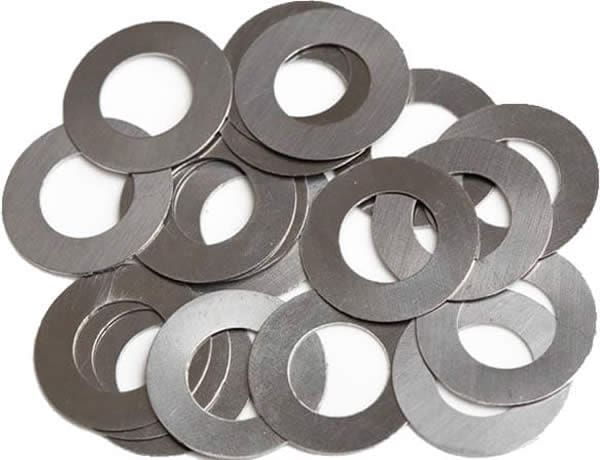In today’s world, sustainability is no longer optional. Manufacturers are under pressure to reduce emissions, cut waste, and improve efficiency – all without compromising quality. At Stephens Gaskets, we’ve made laser cutting a key part of our commitment to sustainable manufacturing.
This blog explains how laser cutting helps reduce your environmental impact, and why it’s the smart choice for eco-conscious businesses in the UK and beyond.
What Is Sustainable Manufacturing?
Sustainable manufacturing refers to the responsible creation of products using methods that reduce energy consumption, material waste, emissions, and environmental harm. It’s about finding ways to do more with less.
Government regulations, supply chain expectations, and consumer demand are all pushing businesses to adopt cleaner practices. Choosing the right production method is one of the fastest ways to make a real difference.
How Does Laser Cutting Support Sustainability?
Laser cutting is a clean, efficient, and modern fabrication process. It contributes to sustainability in several measurable ways:
1. Reduced Material Waste
Laser cutters are controlled by CNC software, which calculates the most efficient layout of parts on a metal sheet. This is known as nesting.
By tightly nesting components, we:
- Maximise usable material.
- Minimise offcuts.
- Lower material cost per part.
This efficiency directly supports low-waste manufacturing goals.
2. Energy-Efficient Technology
Modern fibre laser cutters use significantly less energy than traditional CO₂ lasers or mechanical cutting tools.
Benefits include:
- Faster cutting speeds.
- Lower power usage per part.
- Less heat transfer to the material.
At Stephens Gaskets, we continue to invest in energy-saving equipment to reduce the carbon footprint of every job.
3. No Physical Tooling = Less Waste
Die cutting and stamping require custom tools and dies that eventually wear out or break. These end up in landfill or require energy-intensive remanufacturing.
Laser cutting doesn’t require any physical tooling – just a digital file. That means:
- No material waste from tool production.
- No scrap dies to dispose of.
- No packaging for replacement tools.
This makes laser cutting a cleaner and leaner long-term solution.
Support Sustainability
4. Cleaner Process, Fewer Emissions
Laser cutting is a dry process. There are no oils, coolants, or solvents involved—unlike milling or waterjet cutting. That means:
- No chemical runoff
- Fewer fumes
- Less hazardous waste
We use filtration and fume extraction systems to ensure clean air in our facilities and safe output for your parts.
5. Supports Local and Circular Supply Chains
As a UK-based manufacturer, Stephens Gaskets reduces emissions linked to overseas shipping and long supply chains.
By sourcing and producing locally:
- We support the British manufacturing economy.
- We reduce transportation-related emissions.
- We offer faster, lower-carbon delivery options.
Where possible, we also recycle unused sheet metal or repurpose offcuts.
Beyond Cutting: Our Full Sustainable Approach
Sustainability isn’t just about what we cut – it’s how we run our business:
- ISO-aligned processes.
- Energy-efficient lighting and HVAC.
- Recyclable packaging.
- Digital documentation and paper reduction.
- Local hiring and training.
We believe sustainability starts on the factory floor, but it should benefit every part of your supply chain.
Why Sustainable Manufacturing Matters Now
Sustainable manufacturing gives you:
- Lower costs through better efficiency.
- Better brand reputation with customers and investors.
- Regulatory compliance with ESG and environmental standards.
- Greater competitiveness as buyers demand greener supply chains.
Laser cutting is one small change that delivers big environmental wins.
Ready to Cut Smarter?
If your business is aiming to reduce its environmental impact, partner with Stephens Gaskets. We’ll help you:
- Choose efficient materials.
- Minimise production waste.
- Deliver fast without the carbon hit.
- Stay ahead of regulatory expectations.
Let’s build a cleaner, leaner future – one part at a time.
FAQs About Sustainable Laser Cutting
1. Is laser cutting more sustainable than other methods?
Yes. Compared to stamping, waterjet, or mechanical sawing, laser cutting offers:
- Lower energy use.
- Fewer consumables.
- Less waste.
- Smaller carbon footprint.
2. What makes Stephens Gaskets environmentally responsible?
We focus on local sourcing, efficient production, and clean facilities. Our experienced team ensures every job is optimised to reduce waste.
3. Can I request recycled materials for my job?
Yes. For some materials like aluminium and steel, we can source sheets with recycled content. Let us know your preferences.
4. Do you track or report on carbon footprint?
We can provide basic data on material usage, delivery emissions, and energy efficiency where requested. We’re happy to support your ESG or carbon reporting goals.
Summary: Why Laser Cutting Is a Sustainable Choice
To wrap up, laser cutting supports sustainable manufacturing by:
- Reducing raw material waste.
- Using energy-efficient systems.
- Eliminating toxic chemicals and coolants.
- Removing the need for physical tooling.
- Supporting local, low-emission production.
It’s a better choice for the environment, your brand, and your bottom line.
Call Stephens Gaskets on: +44 (0)121 544 5808
OR Request a quote online and see the difference precision makes.

